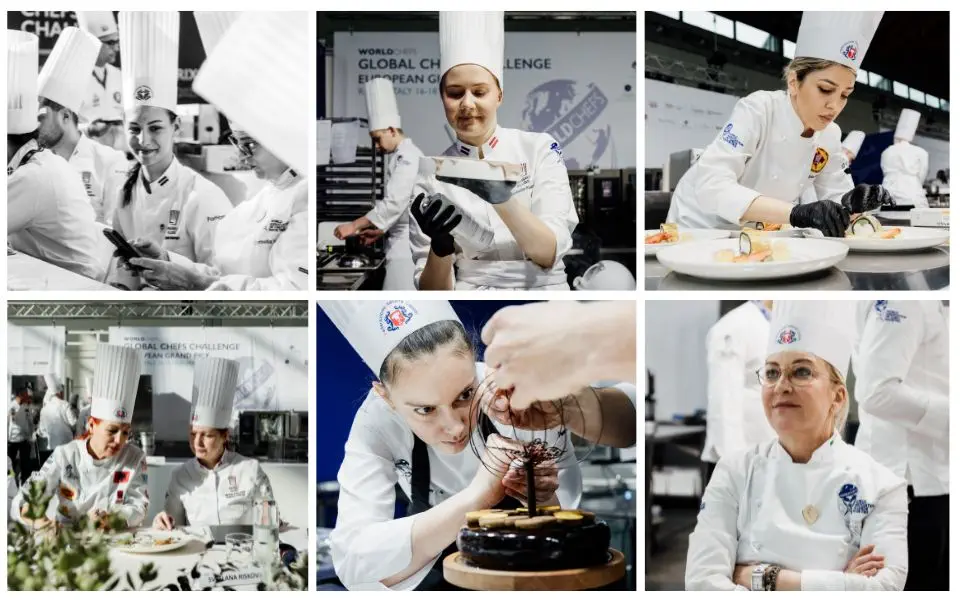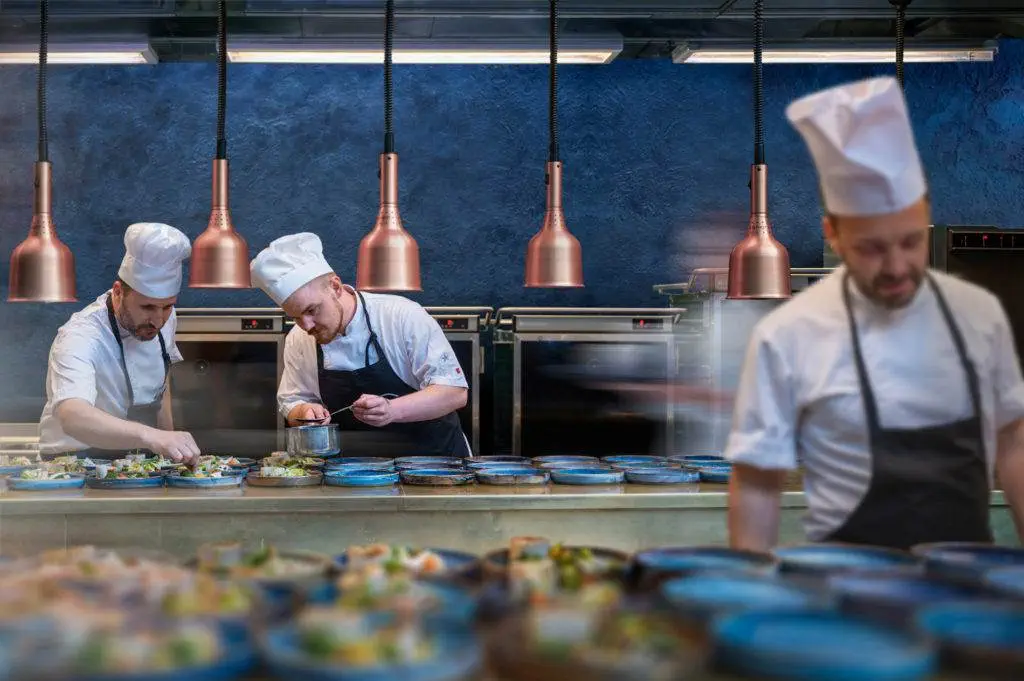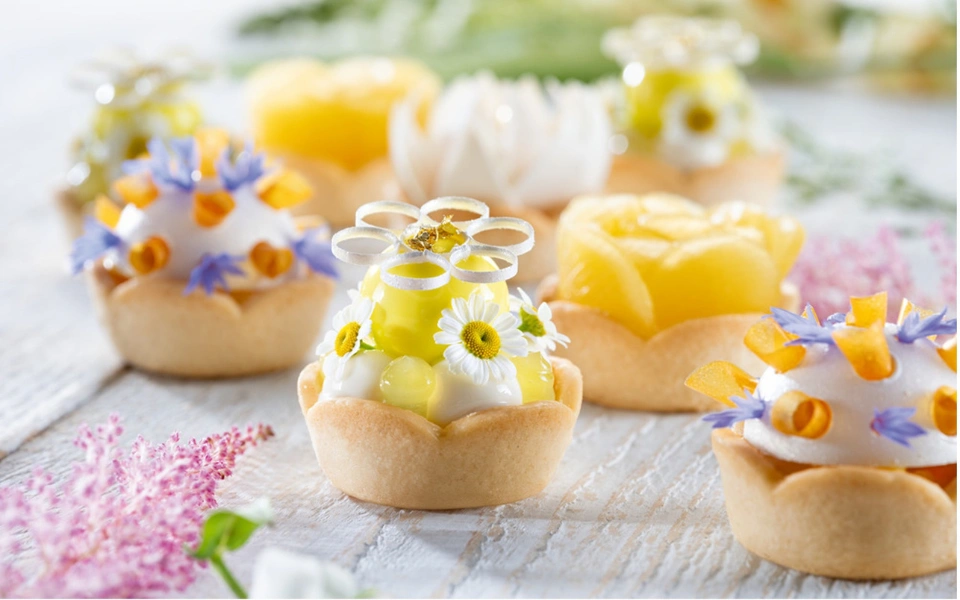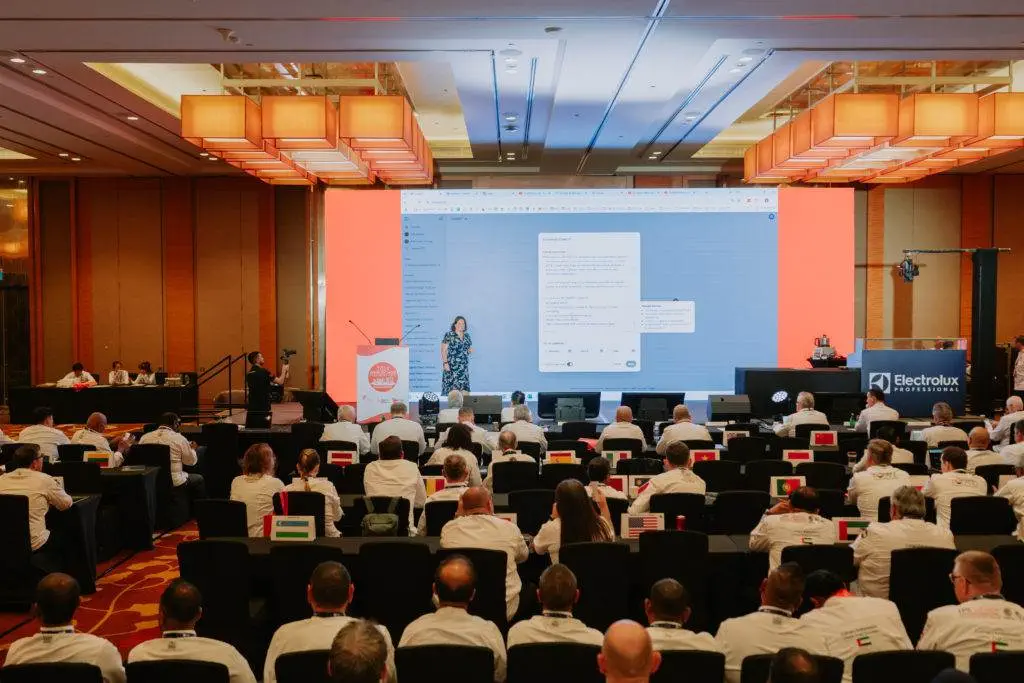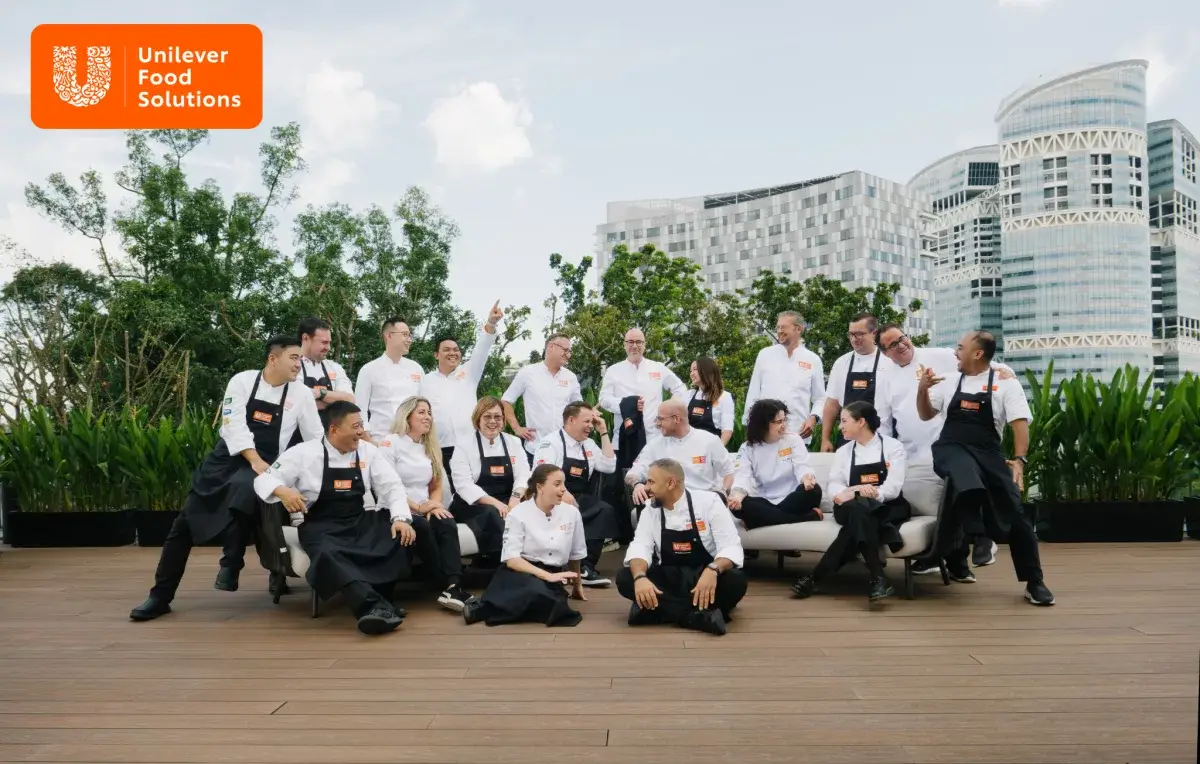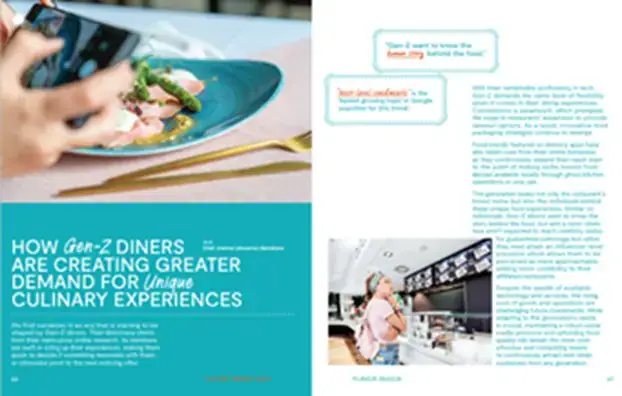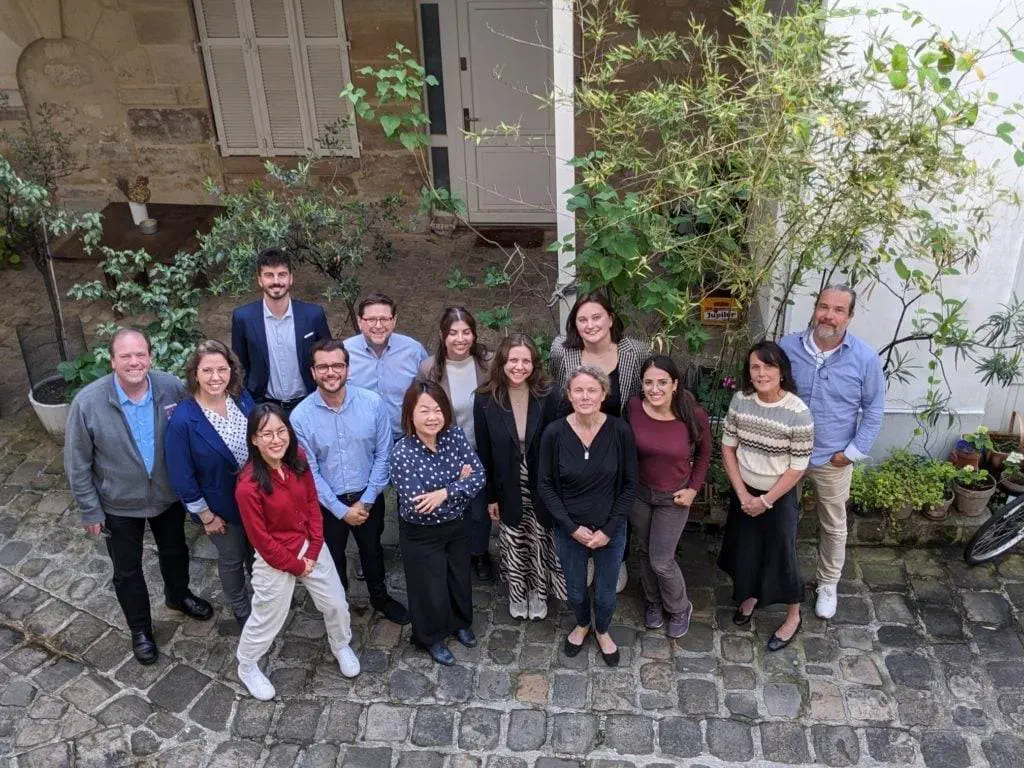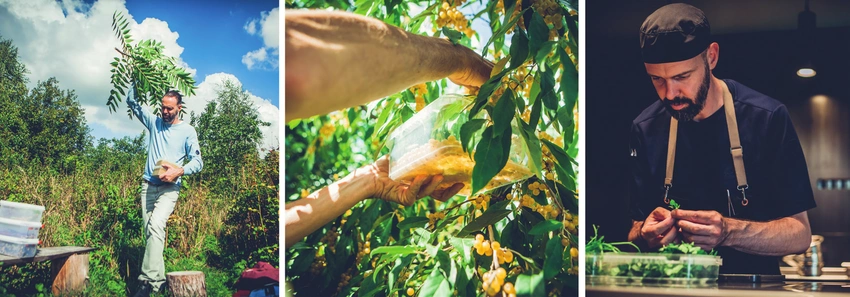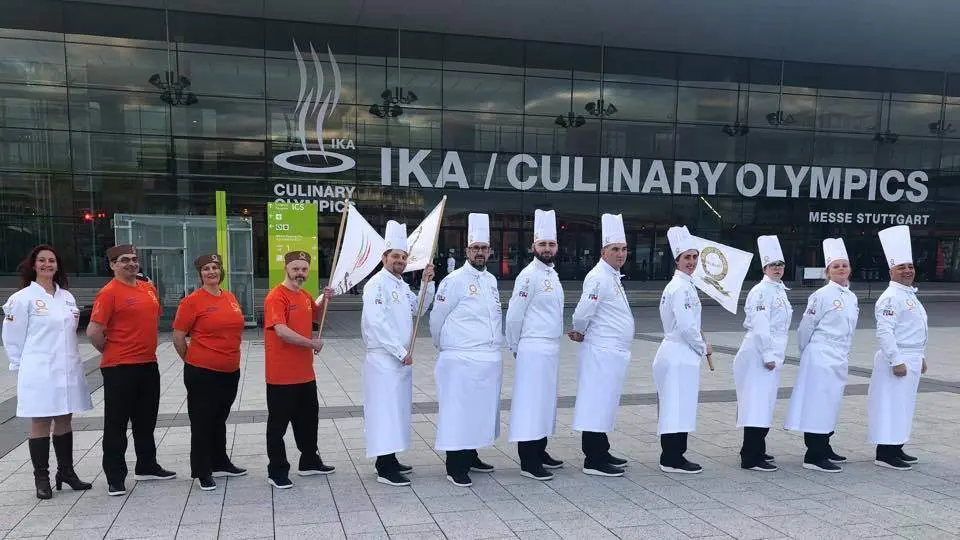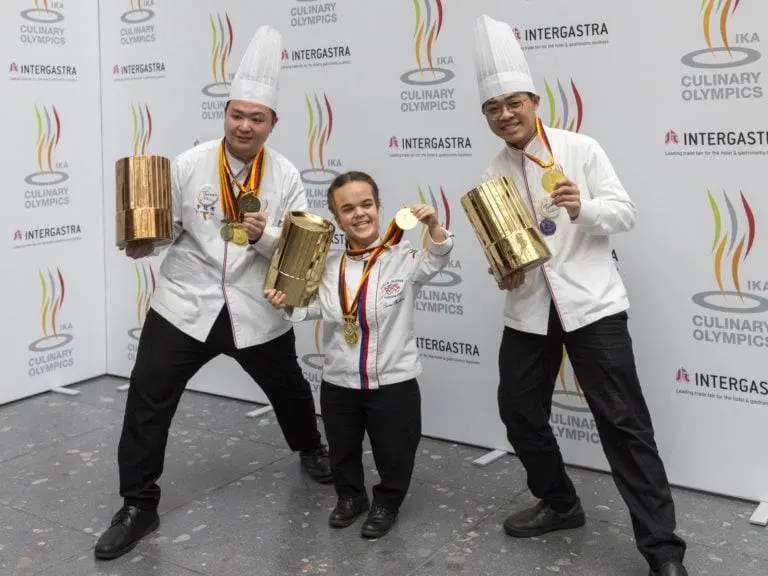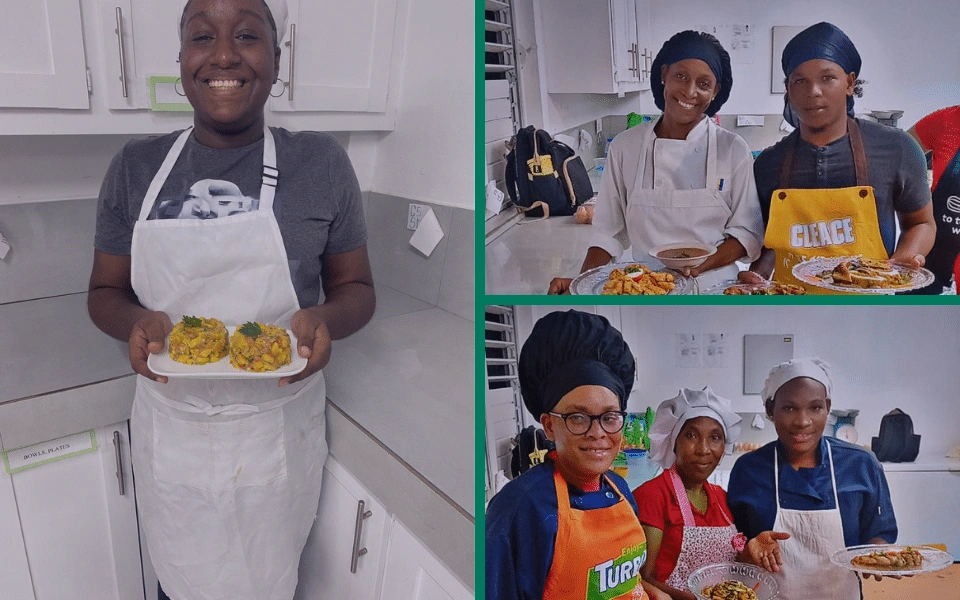In honor of International Women’s Day on March 8, Worldchefs dedicated the month to inclusivity, shining a light on women and diverse voices in the culinary industry. While the kitchen has long been perceived as a male-dominated space, the tides are shifting, and together we are building a better, more inclusive future.
Discover the dedication, resilience, talent, and innovation of women shaping our industry today.
Breaking Barriers and Building Legacies
Across the globe, remarkable female talents are pioneering the industry and building lasting legacies in the culinary world.
Chef Kimberly Tang, Co-Chair of Australia’s Young Chef Club, demonstrates leadership in action. Through her work as a mentor, she is empowering young chefs to take on new challenges and grow their expertise. Her culinary journey, shared in Episode 123 of Worldchefs’ podcast World on a Plate, underlines how women are not just participating in but reshaping the narrative of leadership in kitchens worldwide.
Similarly, Cheryl Cordier, founder of Worldchefs’ Education Partner International Culinary Studio, leads the way as she pioneers and shapes the future of culinary education. As a mentor herself, Cheryl acknowledges the significance of mentorship in her own journey, stating, “Running a scaled business requires different skills than starting one. It’s okay to admit you need help—in fact, it’s crucial for growth.”

Vanessa Polixene, member of the Mauritius Chefs Association and a Worldchefs Committee member, shares her journey as a mentor. At the Shandrani Hotel, Vanessa works with many enthusiastic and motivated trainees, demonstrating skills like how to make Bernaise and Hollandaise sauce. Throughout her work, she remains passionate about shaping the next generation of chefs. Vanessa’s journey as an educator and leader, like Cheryl’s and Kimberly’s, is a testament to the power of women driving industry change.
In addition to leadership and education, Constantina Papaioannou’s success at the Global Young Chefs Challenge Europe Regional Semi-Finals illustrates how women are excelling in competitive culinary arenas. Her victory is not just a personal achievement but also a beacon to inspire other women in their culinary pursuits.
“Growing up I was very lucky to have various female mentors around me such as my grandmother who inspired me to keep going and follow my dream. My advice to other female chefs is to always believe in yourself and keep trying to achieve your goals. The industry is in need of many other female chefs and leaders.”
– Constantina Papaioannou
From education and mentorship to competition, women are leaving their mark on the industry.
Inclusivity on a Global Scale
As a federation of 97 national chefs associations, Worldchefs sees inclusivity through its membership around the world, such as from the Swedish National Chefs Association. They are proud to have two strong female leaders, the president of the association, Maria, and the president of the Swedish Young Chefs Club, Rebecka, who pave the way for continued female leadership.


From Sweden to the Cook Islands, female leadership is growing. Karlene Taokia, President of Cook Islands Chefs Association and an active member of three Worldchefs’ committees, reveals where determination and ambition can lead. She explains what inspired her to become involved in the committees, “[I wanted] to join a team of dedicated members to advocate for culinary commitments and educational challenges for all communities around the world.”
One of these dedicated members who Karlene now joins and works alongside is Worldchefs newly-appointed Feed the Planet Chair, Shonah Chalmers. Having been highly involved for many years, Shonah joined us on Episode 121 of our podcast to discuss Feed the Planet’s past and her vision for its future. As an experienced culinary educator, Shonah inspires her students to become advocates for sustainability in and out of the kitchen.
Shonah, like Karlene, work alongside Worldchefs’ 180 committee member volunteers, coming from 64 countries, who serve as ambassadors of our organization. With a record number of committee members this term, Worldchefs takes a significant step towards greater inclusion, hearing from and interacting with more diverse voices across the globe.
Shaping a More Equitable Future
While the culinary industry has made great strides in its journey of inclusivity, there is still progress to be made in achieving true gender equity. Representation still remains a challenge, with, for example, only 6 female newly-starred in Michelin’s guide 2024 (Euronews). In early 2024, we discussed the lack of strong female representation in the Michelin Guide, discovering that the reasons behind the underrepresentation of women in leading culinary roles are often deeply rooted in sexism and structural inequalities. Despite this, change is happening. Organizations, culinary schools, and industry leaders are working for change, ensuring that talent and passion define industry success.
Beyond Gender: Moving Toward Holistic Inclusion
Beyond gender, inclusivity means embracing all – regardless of race, ethnicity, disability, or background. In March, our Sustainability Around the World webcast on Zimbabwean cuisine explored the rich culinary traditions of this food culture, enriching viewers with new knowledge from experts.
Worldchefs’ Cultural Cuisine & Heritage Food Committee is also spearheading inclusivity efforts, sharing recipes from each of its committee members’ cultures and promoting local cuisines. View the recipes here.
Language is another means of inclusivity which we are exploring through our education programs. Our Sustainability Education for Culinary Professionals has been recently translated into Arabic, making it accessible to thousands of Arabic-speaking culinary professionals worldwide. Plus, our Worldchefs Academy courses are now also in Hindi, marking the 8th language available on this free platform.
By championing diversity – whether through language, gender, culture, or cuisine – the culinary world grows stronger, richer, and more innovative. This month’s focus was just one step toward building a more inclusive future in our industry.
Do you have a story to share about inclusivity in the culinary industry? To share your story with us, click here.

